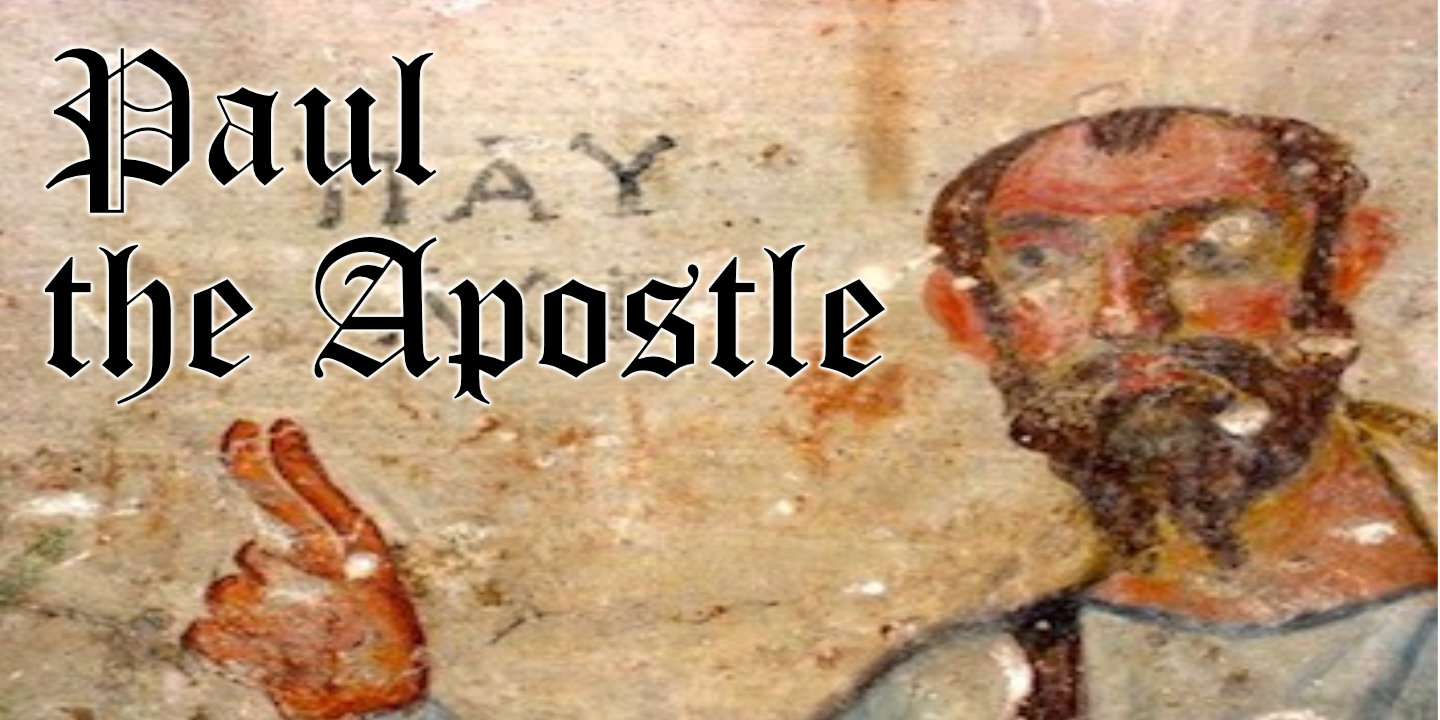
Romans 1:1-9
The Apostle Paul is, without a doubt, the most-often mentioned personality of the New Testament (with the exception of our Lord Jesus). You cannot escape being attracted to the magnificent Apostle as you study the New Testament. You will instinctively ask, “Who is this fascinating man, Paul?”
Paul was Small
We are first introduced to the Apostle Paul in the person of Saul. Saul was the religious and vociferous persecutor of the first century believers (Acts 7:58; 8:1,3; Gal. 1:13-14; Phil. 3:4-5).
After his conversion to Christ (Acts 9:6), and his commissioning (Acts 9:15; 13:2), Saul’s name was changed to Paul.
There are probably several reasons for this name change. (1) It may have been a memorial to the conversion of Paul’s first Gentile convert (Acts 13:7). (2) It could have been to serve as a reminder of Paul’s special apostleship to the Gentiles (Acts 9:15; Rom. 11:13). (3) Perhaps it was to remind Paul of his new identity in the Body of Christ (2 Cor. 5:16-17; Eph. 2:15). (4) Most certainly, it was a sign of a dispensational change! It is not coincidence that Paul’s name is changed right at the time when the Jewish false prophet, Bar-Jesus, is attempting to turn the Gentile from the truth and is blinded for a season (Acts 13:11). This is a picture of the nation of Israel, having rejected Christ, being smitten with blindness for a season (Rom. 11:25) and God now turning to the Gentiles through the ministry given to Paul (Gal. 2:7). (5) Some feel that he was given the name Paul, by God, as a reminder of what he really was before God in, contrast to what he once thought of himself (Phil. 3:4-6). (6) Still others feel that he was called Paul as a “nickname: which called attention to his most obvious physical characteristic. The name Paul means “little one.”
Paul was a Bond Slave
Paul introduces himself to the Romans as a bond-slave (doulos/Gr) who belongs to the Lord Jesus Christ (Rom. 1:1). This implies at least four things. (1) He is not his own. He had no claim on his own life. He belonged to Jesus Christ “Lock, stock, and barrel” (1 Cor. 6:19). (2) He had been purchased by the paying of a price (1 Cor. 6:20; 7:22-23; Rom. 3:24-25); that price being the “blood of Christ.” Christ had made the supreme sacrifice for his redemption from the slave market of sin (Heb. 9:14,26). (3) he is obligated to serve Christ (Rom. 6:16-22). (4) He owns nothing. He has nothing. Therefore, he is completely dependent on his Master for his entire existence (Phil. 4:19; 2 Cor. 9:8).
Paul was Called
Paul also declared himself to be one of the “called” (Rom. 1:1). The call here was not simply an indiscriminate call, but, rather, a calling (klatos/Gr.) to a privilege and a function. The privilege to which Paul was called was the wonderful privilege of salvation. The function to which Paul was called was that of apostleship.
Paul was Separated
God has set Paul apart for Himself (Rom. 1:1). This meant at least three things to Paul. (1) His separation was specific. The word separated (aphorize/Gr.) here means to “set apart with specific boundaries.” The specific boundaries to which Paul was set apart and within which he as to function was the “gospel of God.” (2) His separation was total. In the immediate context (Rom. 1:1-9), it is quite apparent that Paul has no reservations in his dedication to the task of preaching the gospel by using such words as “bond slave” (v. 1), “obedience to the faith” (v. 5), and “God is my witness Whom I serve with my spirit in the gospel of His Son” (v. 9). In 2 Cor. 5:14-20, Paul makes it clear that all believers were saved to serve. (3) His separation was for an ultimate purpose. Romans 1:5 may properly be translated, “We have received the underserved gift of apostleship, to promote among all Gentiles a yielding in faith to His name” (Berkeley). Paul is saying that the ultimate purpose for his separation to the gospel was to get lost people saved.
Paul was a Recipient of Grace
Paul had received grace to save him and here Paul received grace to serve (Rom. 1:5). This is the proper sequence of Christian living. First, grace to save and then grace to serve. This is God’s way of supplying all that Paul will have need of in the execution of his office as an Apostle.
Paul was an Apostle
Paul was an Apostle (Rom. 1:1,5, cf., 1 Cor. 1:1; 5:9). Like other spiritual gifts, this gift was sovereignly bestowed upon Paul by God the Holy Spirit (1 Cor. 12:11). Paul, no doubt, had other spiritual gifts such as miracles, healings, tongues (none of these three are in operation today), evangelist and pastor/teacher. But the one he most defended and magnified was his gift of apostleship (Rom. 11:13).
Paul’s calling to the office of apostleship was not of men, neither of man, but by the revelation of Jesus Christ” (Gal. 1:11). Paul was specifically called to function as the Apostle to the Gentiles” (Acts 9:15; Rom. 11:13).
